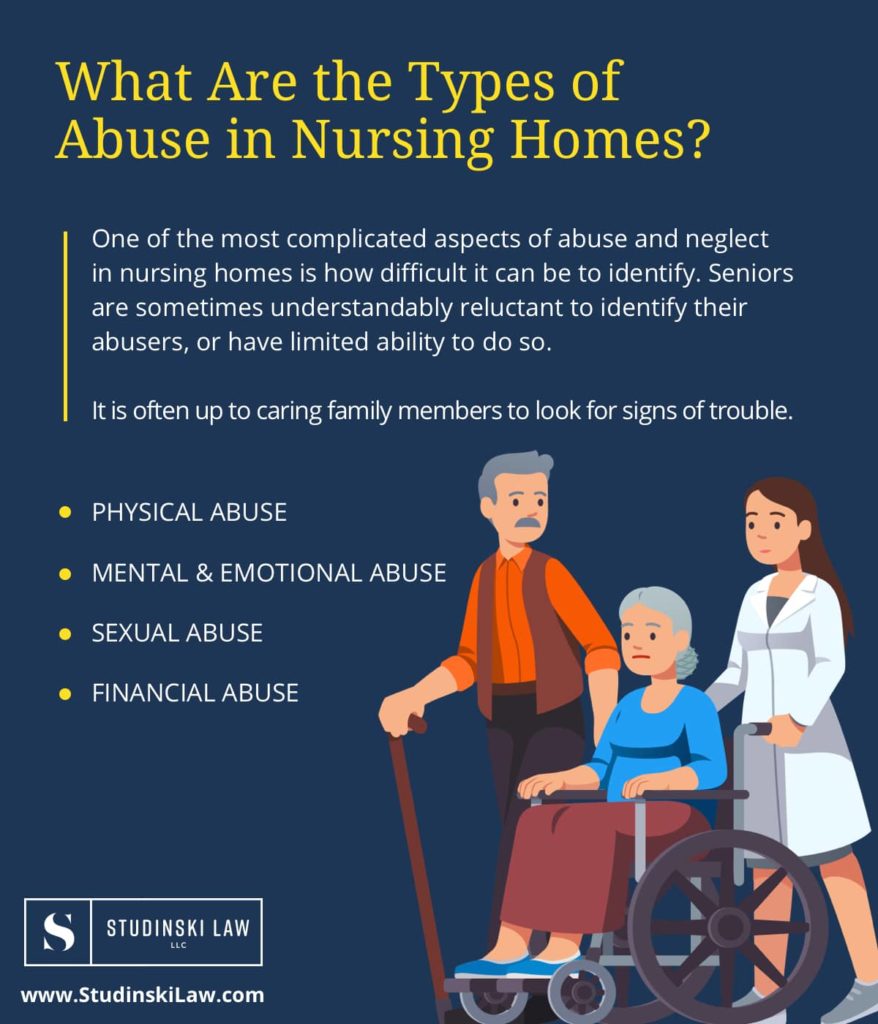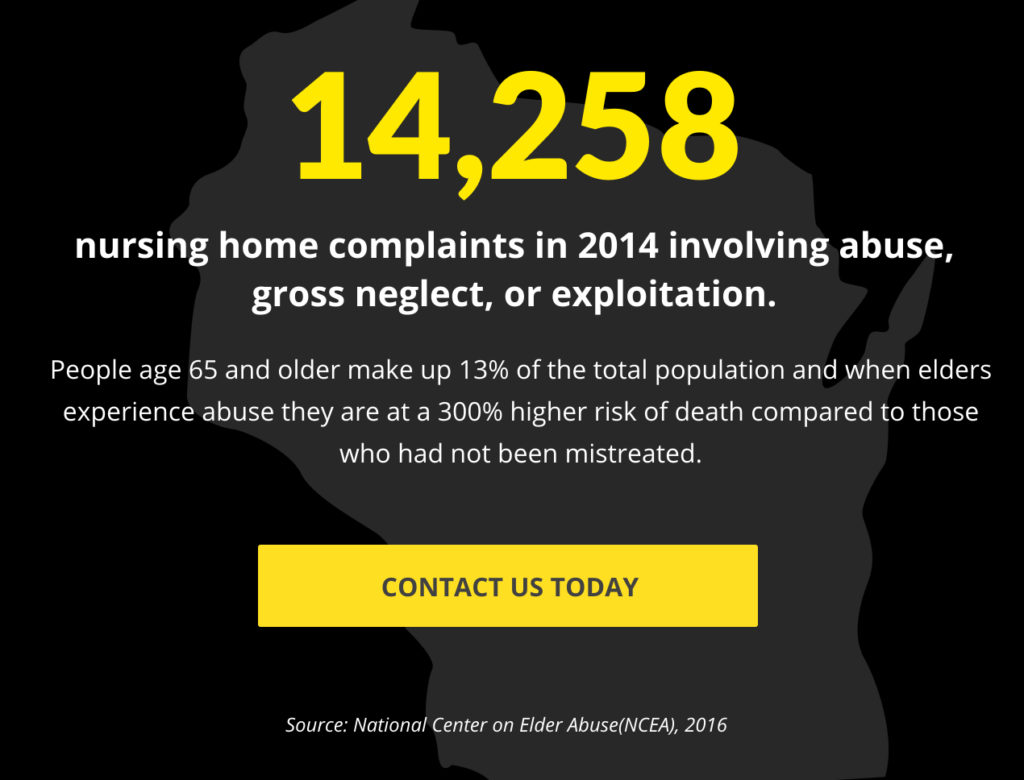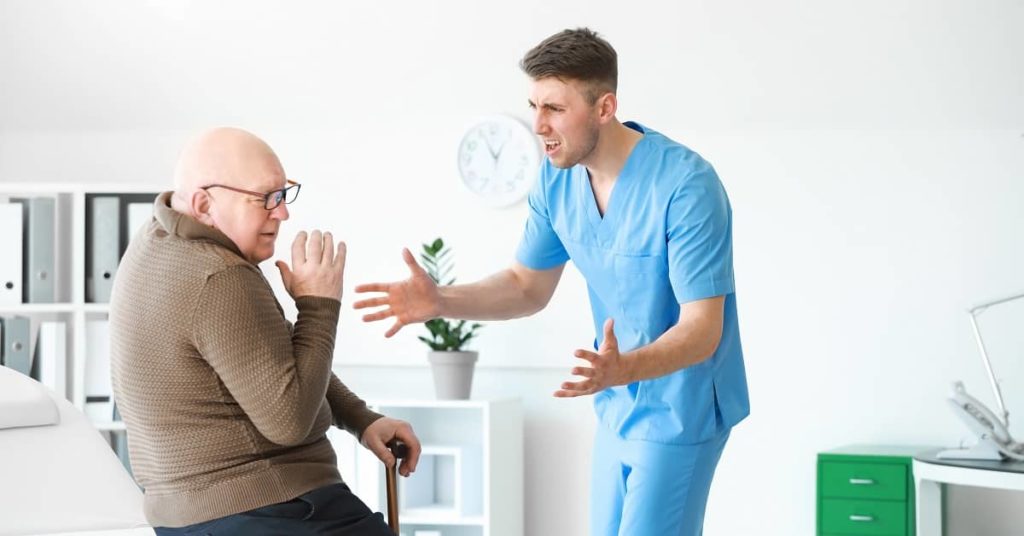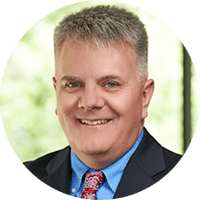One of the most difficult decisions any family can make is to entrust the care of an elderly loved one to someone else. Nursing homes and other long-term care facilities are governed by extensive regulations. When the facility breaks these regulations and your loved one suffers harm as a result, you need an attorney who can hold them accountable.
If your loved one suffered serious injury, illness, or other harm due to nursing home abuse or neglect, Studinski Law, LLC can help. We take on complex claims many other law firms don’t, and we investigate thoroughly to identify all of the liable parties in your case and to account for every dollar of compensation you deserve.
Contact Studinski Law, LLC for a free consultation by calling (715) 343-2850 today. Our Wisconsin nursing home abuse attorneys serve clients in Plover, Marshfield, and throughout the state of Wisconsin.
Experienced attorney and author Jason Studinski offers this FREE must-read guide for anyone who wants to prevent, recognize, and remedy nursing home abuse and neglect.
Many people use the term “nursing home abuse” to refer to mistreatment in any facility. However, there are a number of different care facilities where neglect and abuse of the elderly can take place. Each of these facilities differs in its responsibilities to residents and the applicable laws and regulations:
Elder abuse and neglect doesn’t only occur in outside facilities. In cases of home care abuse, a caregiver who comes to your loved one’s home or your home can mistreat them in a place where they should be able to feel safe.

One of the most complicated aspects of abuse and neglect in nursing homes and other facilities is how difficult it can be to identify. Seniors are sometimes understandably reluctant to identify their abusers, or have limited ability to do so, so it is often up to caring family members to look for signs of trouble.
These signs may include:
Nursing homes and other facilities have a duty to uphold quality of care standards. Failure to do so constitutes nursing home negligence, for which the facility and its staff can be held legally accountable.
Sadly, abuse in nursing homes can take many different forms. These include:
Each of these types of abuse may involve various forms of abhorrent behavior on the part of a caregiver.

Everybody tends to lose physical strength as they age. In addition, some elders become frail due to osteoporosis and other conditions. As a result, physical abuse by a caretaker can lead to serious injuries and even death.
As you might expect, physical abuse includes pushing, hitting, shoving, choking, and other violence. It may also involve the unnecessary use of restraints, which can cause physical injury and result in neglect. A restrained individual may also suffer from positional asphyxia, where the senior is deprived of oxygen due to the location of the restraints or the positioning of their body.
In addition to physical restraints, abusive staff members may misuse medications as a form of “chemical restraint” to control residents. This is a dangerous practice, as it often involves giving too much of a prescribed medication or using medications that aren’t prescribed to the elderly individual.
Not all forms of abuse leave a visible mark. Elders may be subjected to verbal abuse such as:
Seniors who suffer from mental and emotional abuse may experience depression, anxiety, paranoia, and more. They may also withdraw from friends and loved ones.
Elderly individuals are at risk for sexual assault because they may have limited mobility, muscle weakness, and decreased mental functioning or communication abilities. All of these issues enable a physically capable person to take advantage of residents who are unable to fight back and may be unable to communicate to other staff what has happened to them.
Seniors often live on a fixed income. However, this does not prevent unscrupulous caregivers from trying to take advantage of an elderly person’s retirement benefits, savings, and other financial assets.
Financial abuse and exploitation in nursing homes can take a variety of different forms, from theft of money and personal property to fraudulent use of credit and debit cards. Some cases even involve manipulation of a senior who is mentally or cognitively vulnerable to sign over assets to the caregiver or name them as a beneficiary in their will.

If you or a loved one has been injured due to abuse or neglect in a nursing home or other facility, you and your family may be entitled to compensation for the damages you have suffered. The Wisconsin nursing home abuse attorneys at Studinski Law, LLC will aggressively pursue your claim to recover damages such as:
The compensation you may be able to pursue in your claim will depend on the damages incurred. It is important to contact a Wisconsin nursing home abuse and neglect lawyer as soon as possible to discuss your case. Your lawyer will thoroughly analyze the losses you have sustained and advise you of the best course of action.
Tragically, some cases of abuse and neglect in a nursing home, assisted living center, or other facility can result in the death of a resident. You may be able to pursue a wrongful death claim if your elderly loved one’s passing was the result of an individual or business’s negligence, recklessness, or intentional wrongdoing.
You may have the right to file a wrongful death claim if you were the elderly individual’s spouse, domestic partner, child, or parent. If you were not one of these relatives, then you may not have the right to file this type of suit.
Family members and/or the representative of the deceased’s estate can pursue compensation for the following damages in a wrongful death claim:
If your loved one left behind a spouse and children, then the compensation recovered may be divided among these individuals. If you were the person’s spouse and the deceased had no children, then you may be entitled to all the compensation. If your loved one had children but no living spouse, then each child may bring a wrongful death claim and must prove their damages individually.
The Nursing Home Reform Act of 1987 established national standards for the quality of care nursing homes are required to provide. It also created rights and protections for the residents of nursing homes, including:
Wisconsin has also instituted extensive regulations for nursing homes and other care facilities. It is worth noting, however, that Wisconsin does not have statutes that specifically cover elder abuse. Nonetheless, criminal penalties may apply and civil actions may be brought for cases of elder abuse in the home and elder abuse by a spouse.
It is crucial to choose an attorney who has experience and knowledge of the state laws and federal regulations for nursing homes and other facilities. In addition, it is important to act quickly if your elderly loved one is the victim of abuse or neglect; the statute of limitations in Wisconsin for personal injury claims, including those involving nursing home neglect and abuse, is just 3 years.
Our founding attorney, Jason Studinski, is an authority on nursing home neglect and abuse law. In addition to representing numerous families in litigation against nursing homes and other facilities, he wrote the book on compassionate care for seniors – literally. “How to Keep Your Loved One Safe in a Wisconsin Nursing Home” is a celebrated educational tool that helps families identify signs of abuse and neglect and take action to protect their elderly loved ones.
When you hire Studinski Law, LLC, our team prepares a comprehensive plan of approach for your case. This plan outlines our strategy for winning your case and our expected timeline so you have a clear idea of how we will work toward a favorable resolution.
Next, we thoroughly investigate your claim. Investigating negligence in a nursing home is difficult and time-intensive, but our law firm has the knowledge and resources to gather the necessary evidence. We have strong relationships with leading investigators and experts who can help us build your claim.
Thorough investigation of your case will enable our team to:
An individual caregiver may be responsible for abusing or neglecting a senior, or the facility itself may be negligent in its hiring practices, supervision of workers, staffing, maintenance of the property, and more. If negligence on the part of the facility was a factor in the abuse or neglect, you may be able to file a claim against both the facility and individual employees.
Elder abuse involves intentional actions to harm an elderly individual. An elderly person is someone who is advanced in age and who requires significant medical care to carry out their activities of daily living, such as bathing, cooking, and taking medications. Abuse may be physical, mental, emotional, or financial. Many specific action can constitute abuse. If you are concerned that your loved one is facing elderly abuse, contact a lawyer right away.
The Nursing Home Reform Act of 1987 gives nursing home residents rights while in long-term care facilities. If your loved one’s rights have been violated, they may have suffered abuse or neglect. We can help you determine if someone harmed your loved one and if you are entitled to compensation for losses as a result.
Often, abuse and neglect occur because the long term care facility fails to properly staff its facility or train those staff members who it employs. It may not have enough employees to provide proper care for all of its residents, resulting in neglect. Staff members may not be properly trained in how to move residents to prevent bedsores, resulting in a failure to provide proper care. However, sometimes independent medical providers or product suppliers cause harm to individuals in nursing homes. In those cases, an outside party may be liable. We can help you understand your case and navigate the nursing home abuse and neglect claims process.
We trust nursing homes and other facilities to provide proper care for our loved ones when they can no longer care for themselves. When staff and management at the facility violate this trust and mistreat our loved ones, the individual employees and owners must be held accountable.
At Studinski Law, LLC, we have successfully pursued compensation on behalf of clients in nursing home abuse and neglect cases. When you hire our team, all of our experience and compassion is at your disposal, and we will fight hard to win the compensation you and your family deserve.
Please call (715) 343-2850 today for a free consultation. Our nursing home abuse lawyers serve clients in Plover, Marshfield, and throughout Wisconsin.


My brother-in-law died tragically in an out-of-state car wreck that wasn’t his fault. I was appointed to handle his estate. We hired Jason Studinski. We were so impressed with his work. Jason and his team seemed to…
Skillful. Understands the rules and regulations for nursing homes, medicine for nursing home residents, and the legal system. We needed Jason Studinski’s help when my husband was neglected in a nursing home. Thankfully, he was able to resolve…
I was viciously attacked by a German Shepherd and left with permanent injuries as a result. Studinski Law went above and beyond in handling my case. They kept me informed every step of the way. Their extremely thorough…
We want to thank you for the extremely professional manner in which you handled my mother’s case. You are a top flight legal team, as well as wonderful communicators, keeping us informed in all aspects of the case and…
We hired Jason Studinski to represent me after being involved in a boating accident. I am married to a personal injury attorney and we felt it was best to hire someone whom we regard as “the best”….
